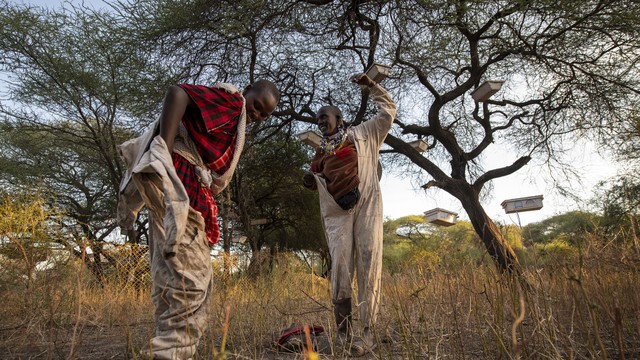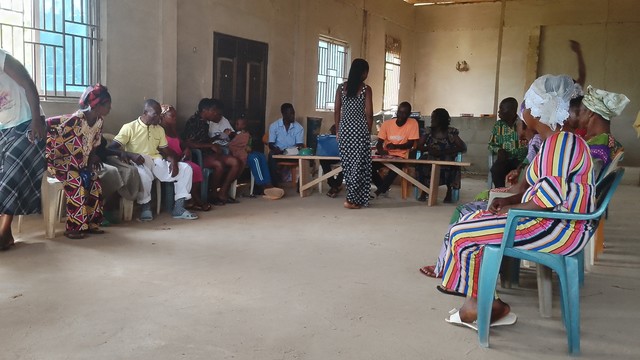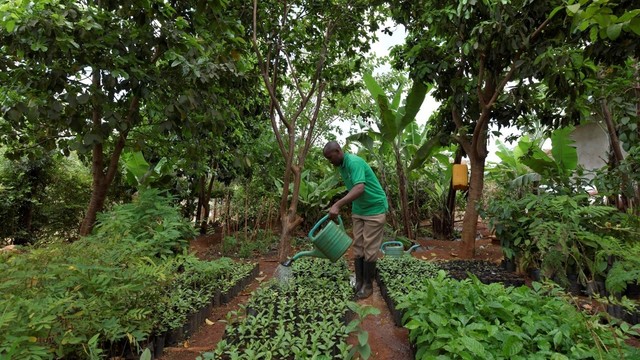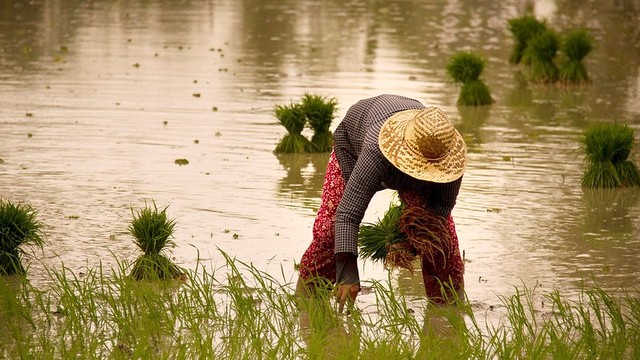Fast track out of poverty: farm labour or smallholder?
When IIED and Hivos launched their ‘provocation’ seminars late last year, they hoped to challenge conventional wisdom and provoke debate on the issues and dilemmas of making markets work for small-scale farmers. On all counts, the latest seminar, held in Manchester on 25 May, lived up to expectations.

When IIED and Hivos launched their ‘provocation’ seminars late last year, they hoped to challenge conventional wisdom and provoke debate on the issues and dilemmas of making markets work for small-scale farmers. On all counts, the latest seminar, held in Manchester on 25 May, lived up to expectations.
Asked whether development efforts should focus on smallholders or farm labourers, participants of the provocation, which was hosted by The University of Manchester, were fiercely divided.
Some argued that supporting smallholders offers the safest route to sustainable rural economic development. “In the end you are much safer with smallholders... They can boost the production of a whole country,” said Wilfred Kamani, head of agribusiness Wilmar in Kenya.
In his experience working with 4,000 Kenyan flower growers, Kamani has found that supporting smallholders improves environmental management, enhances distribution of resources, helps retain land as an asset for security in old age and fosters innovation and business skills.
In contrast, working as a labourer on large-scale, commercial estates or plantations offers little hope of escaping rural poverty. “The prices and long-term contracts that local people can manage to negotiate is just enough for survival, but that’s it,” said John van Duursen of Hivos.
And commercial production will often seek to replace labour with mechanisation, added Sukhpal Singh from the Indian Institute of Management.
But not everyone agreed. Miet Maertens, of the University of Leuven, argued that wage labour can play an important role in improving livelihoods among the rural poor. “Large-scale farming is not necessarily bad... It benefits the poor and it benefits women because it creates employment opportunities in areas where jobs are often scarce or inaccessible.”
For women, Maertens suggested that working as farm labourers can substantially increase their income and bargaining power within the home, and lead to other development benefits such as improved schooling of their children. Wage labour can also provide a source of money to invest in their own farm, or off-farm businesses, said Maertens.
Terms of engagement
Several participants suggested that, when it comes to supporting smallholders or wage labour it’s not a question of either or. In many cases, we are talking about the same people. For example, Sally Baden, from Oxfam, shared findings from Honduras, which suggest that about 40% of smallholders’ income comes from waged work.
“The premise of agricultural wage labour versus smallholder production ignores the complexity of labour markets,” added Sue Longley from the International Union of Foodworkers. “Many smallholders rely on working as hired plantation labour to support the family income. Agricultural workers aspire to have access to land.”
But if the participants were divided about which group to target, they all agreed that for development efforts to succeed, they must re-shape the terms of engagement. That means improving terms of trade for smallholders, and terms of engagement for agricultural workers.
“There’s nothing transformative about working on a big farm,” said Mike Bird of Women in Informal Employment: Globalizing and Organizing. “Whether or not the benefits accrue to the rural poor depends on the terms on which they’re employed,” he said.
[flickr-photo:id=522984425, class=left, size=m, caption=More than 450 million people work as waged labourers in agriculture (Credit: Flickr/poonomo)]
And the reality is that for most of the 450 million waged labourers in agriculture, working conditions are grim. “This is a highly exploitative environment,” said Peter McAllister of the Ethical Trading Initiative. “There is too much evidence of low wages, exploitative employment practices, discrimination, intimidation and forced labour, to consider that agricultural labour is a panacea”.
Small-scale farming is little better, added Longley. “Most child labour takes place in smallholder agriculture...It is a grave mistake to assume this is benign child work.” Agriculture is one of the most dangerous sectors to work in. Longley suggested that this poses a major threat to smallholders, who have limited ability to ensure safety, both for themselves and for the environment.
A question of power
For both groups, the problem is power — of lack of it. “Markets work against smallholders and agricultural labour for the simple reason that they both exercise little power in their ability to negotiate,” said McAllister. “Empowering smallholder farmers and labourers is ultimately the only way in which they will be able to secure a better share of the value chain,” he added.
And achieving that is more than simply providing more job openings or treating smallholders as commercial entities. “Opportunities can’t in themselves create empowerment,” said Baden. A simple job offer does not guarantee that wages will be fair or that working conditions will be safe and secure, for example.
It’s about organisation — supporting farmer and labour organisations so that both groups can have a stronger voice to negotiate contracts and secure themselves a better deal.
Find out more
Article from 4th Provocation seminar: 'A growing call for organisation'



